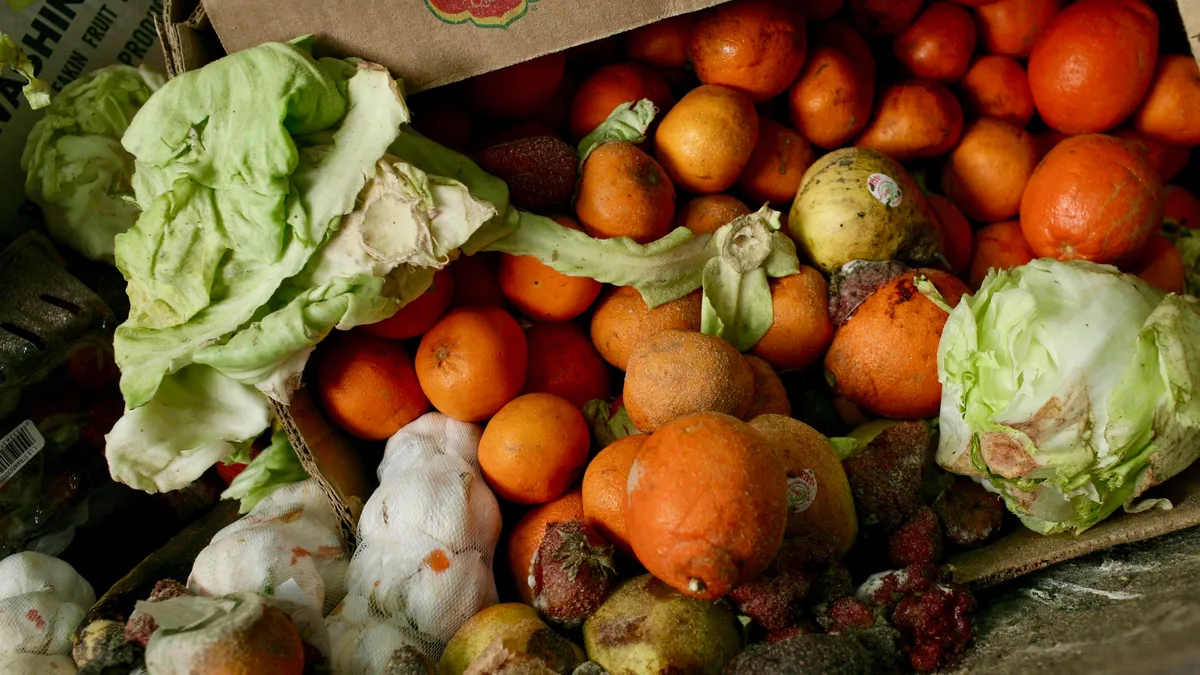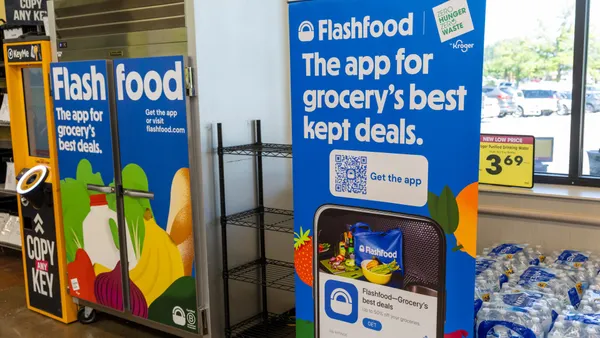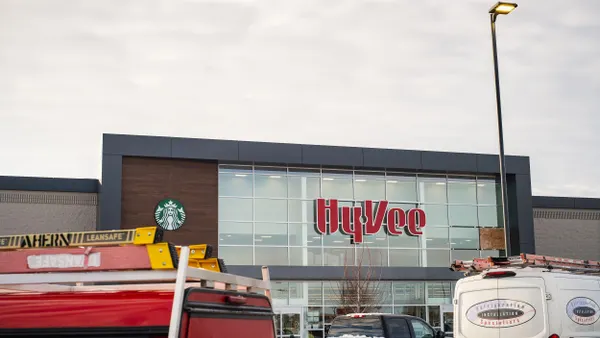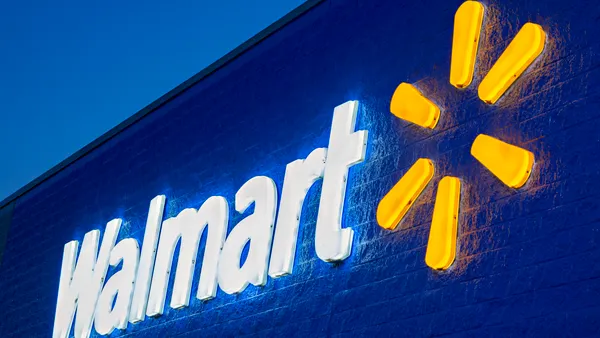Dive Brief:
- Ultrafast grocery delivery firm Getir announced on Tuesday that it has teamed up with Copia, a technology provider that connects food donations to local nonprofits. With the partnership, which started in March, Geitr is giving its surplus food to nonprofits across the New York City, Chicago, and Boston regions.
- Separately, e-grocer Farmstead said in a press release on Thursday that it has launched a new feature called "Eat This First" on email receipts to remind customers which items from their order to consume first to reduce food waste.
- The efforts by the two online grocery delivery companies come at a time when the food industry is facing increasing scrutiny over its sustainability measures, particularly around food waste.
Dive Insight:
Getir said it has already donated 7,485 pounds of edible food, delivered 6,238 meals to local nonprofits and saved 741,000 gallons of water since it started to work with Copia last month.
The delivery firm said in the announcement that Copia has the technology to measure, manage and strategically reduce food waste while getting edible surplus food to people in need. Copia allows Getir to schedule food pickup times, organize food donations, stay compliant with local rules and manage tax benefits.
Copia CEO Kimberly Smith said the partnership gives Getir “visibility into a new sector of their supply chain."
Getir's partnership comes on the heels of reports saying quick delivery firms, like Gopuff and recently closed Buyk, let good food go bad. It also follows recent legislative actions to reduce food waste. For example, California recently enacted a law requiring grocery stores and restaurants to donate excess food.
At the start of this year, several instant grocery delivery companies including Jokr, Gorillas and Reef Technology's Lightspeed Market linked up with Too Good to Go to sell their surplus food at a discounted price.
Meanwhile, Farmstead touted the use of its proprietary technology to tackle its food waste reduction efforts and noted that its customers are automatically enrolled in receiving "Eat This First" receipts via email, but can opt out if they want to.
Farmstead also said it has "precise" sell-by date inventory control, sourcing of most items close to consumers and utilizing automated procurement systems for perishables to also minimize the chance of food going bad.
"While a typical grocery store has 30 to 40 percent food waste, Farmstead is in the single digits," Pradeep Elankumaran, co-founder and CEO of Farmstead, said in the announcement.












